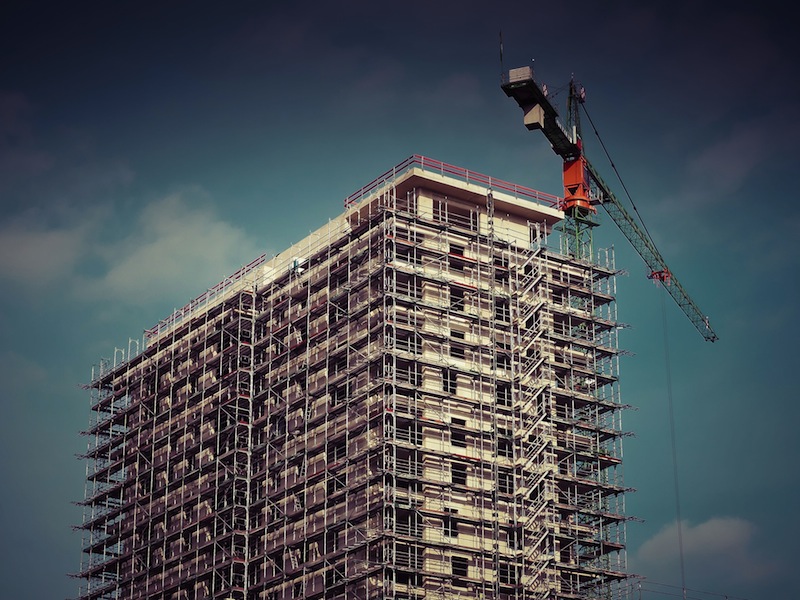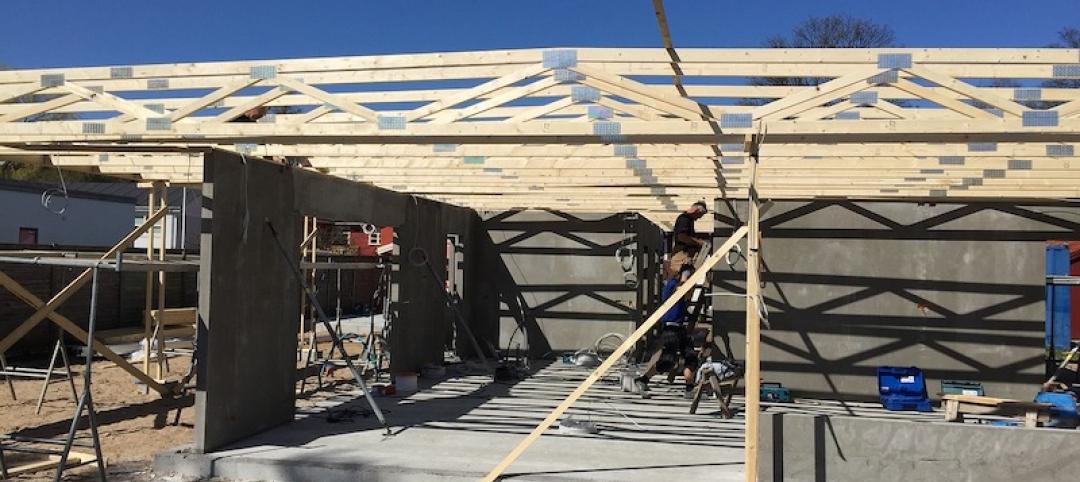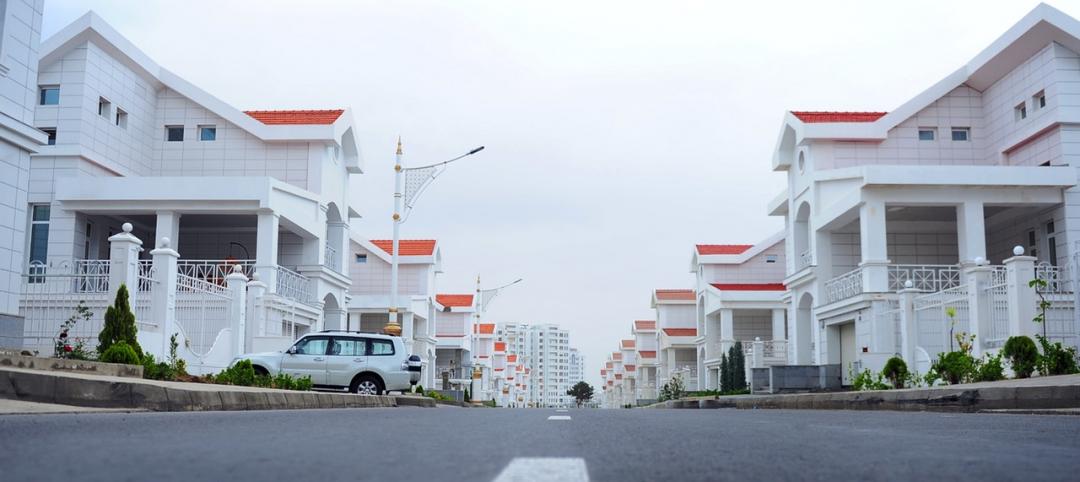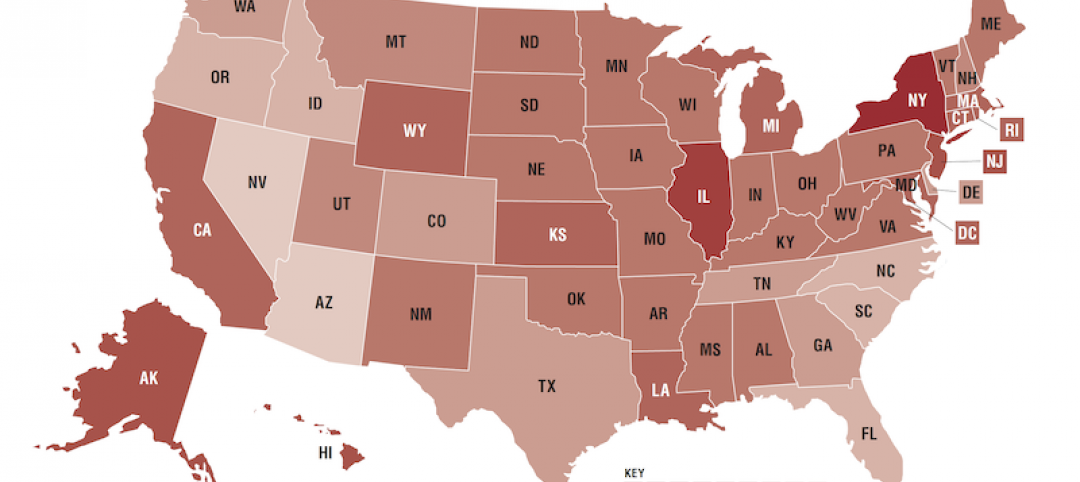Nonresidential construction activity should remain strong in the U.S. through 2016, although labor shortages and the rising cost of sheet glass will make projects more expensive, according to JLL’s latest Construction Outlook.
JLL sees the South as the country’s “new frontier” for construction, thanks to the region’s low labor and land costs. Conversely, the erosion in oil prices is cramping building in places like Houston whose economics rely heavily on their energy industries.
Sustainable office development pushed renovation activity to new heights in 2015. “This push for new build-outs was not limited to office spaces, with retail and industrial developers redeveloping existing space to include new technology and engage consumers in unique ways,” JLL’s 34-page report states, adding that this trend should continue this year.
The report sees positive signs in construction employment, which outpaced the country’s 4% growth rate. JLL also surveyed development firms that, in the main, agree that construction activity should be steady at least through the second half of 2016, and possibly well beyond that.
Building materials costs, which had increased incrementally since 2010, appear to have plateaued last year. The steel market was flooded by low-cost product, for example. The one notable exception was sheet glass, whose prices have skyrocketed, leading, some construction companies to acquire glass makers to stabilize their costs.
While materials costs are always a concern, JLL notes that labor costs—wages and benefits—have spiked, particularly for skilled workers. Average weekly wages for construction workers rose in December 2015 by 4.2% compared to the same month a year earlier. Massachusetts, New York, and Washington D.C. have the highest weekly construction wages; Georgia, Missouri, and Colorado the lowest.
Industrial sector a ‘shining star’
JLL estimates the value of construction put in place rose 10.2% last year through November, with the Education (up 12% in construction activity) and Manufacturing sectors driving the train. But all of the top construction markets also saw at least a 1% increase in construction costs from the second to the fourth quarter of last year.
“For financial viability, project sponsors will need to strike a balance between the lower costs for some materials, like steel, and the ever-increasing cost of glass and labor,” says Todd Burns, President, Project and Development Services, JLL Americas. “Location continues to be a key driver in finding success throughout various industry sectors. With a slowed growth in construction, executives need to think strategically in terms of where they will invest.”
The researcher sees parallels between construction costs and rents. It points specifically to the San Francisco Bay Area, where construction and office leasing are among the highest in the country.
Nationwide, office deliveries outpaced starts for the first time since the recession, in terms of total square footage, and approached pre-recession numbers. Office completions in every quarter last year were higher than corresponding quarters in 2014. And with the exception of Houston, where office construction was off nearly 42% last year, office construction activity was steady in most top markets.
As of the fourth quarter of last year, there were 88.5 million sf of office space under construction, nearly 9% more than in fourth-quarter 2014. The quarter-to-quarter gains in industrial construction were even more pronounced during this period: 23%. (JLL refers to the industrial sector as nonresidential construction’s “shining star,” and estimates that 178.4 million sf of industrial space were delivered last year.)
Dallas (with 19.7 million sf of industrial space under construction as of the fourth quarter) and Atlanta (19.6 million sf) eclipsed California’s Inland Empire as this sector’s leading markets.
JLL’s take on Retail construction is that while it was off slightly last year, it still showed fourth-quarter gains in all major markets. (Ironically, Houston was the leader, with 2.9 million sf under construction in the fourth quarter, followed by New York City, with 2.7 million.) Retail vacancies across the country declined as the economy improved.
“We have never seen a greater sense of urgency from retailers to address their stores’ role in delivering a ‘True Omni Branded Experience’ for consumers,” says Aaron Spiess, Executive Vice President, Managing Director, Project and Development Services, JLL Americas. “The pressure of emerging digital experiences and platforms has escalated the need to exceed consumer expectations of the store. With the continuous advent of new e-commerce capabilities, this is a trend we expect to continue.”
The 2016 general election looms large in JLL’s forecast. “The upcoming fight over the debt ceiling could delay government buildings and other public works,” its report states. JLL also notes that a slowing global economy could have a silver lining by causing material prices to fall further.
But don’t expect wage costs to taper off any time soon, it predicts. “There remains a dearth of trained construction employees, especially in trade positions, and wages are rising as a result.”
In its final analysis, JLL foresees construction starts will increase at a slower rate than last year, but ahead of the overall economy. “Demand from downstream markets such as Austin, Chicago, Atlanta, and Charlotte will bolster the industry, and construction profit margins will continue to rise, keeping construction growing at a faster rate than the overall economy.”
Related Stories
Market Data | Nov 22, 2019
Architecture Billings Index rebounds after two down months
The Architecture Billings Index (ABI) score in October is 52.0.
Market Data | Nov 14, 2019
Construction input prices unchanged in October
Nonresidential construction input prices fell 0.1% for the month and are down 2.0% compared to the same time last year.
Multifamily Housing | Nov 7, 2019
Multifamily construction market remains strong heading into 2020
Fewer than one in 10 AEC firms doing multifamily work reported a decrease in proposal activity in Q3 2019, according to a PSMJ report.
Market Data | Nov 5, 2019
Construction and real estate industry deals in September 2019 total $21.7bn globally
In terms of number of deals, the sector saw a drop of 4.4% over the last 12-month average.
Market Data | Nov 4, 2019
Nonresidential construction spending rebounds slightly in September
Private nonresidential spending fell 0.3% on a monthly basis and is down 5.7% compared to the same time last year.
Market Data | Nov 1, 2019
GDP growth expands despite reduction in nonresident investment
The annual rate for nonresidential fixed investment in structures declined 15.3% in the third quarter.
Market Data | Oct 24, 2019
Architecture Billings Index downturn moderates as challenging conditions continue
The Architecture Billings Index (ABI) score in September is 49.7.
Market Data | Oct 23, 2019
ABC’s Construction Backlog Indicator rebounds in August
The primary issue for most contractors is not a lack of demand, but an ongoing and worsening shortage of skilled workers available to meet contractual requirements.
Multifamily Housing | Oct 16, 2019
A new study wonders how many retiring adults will be able to afford housing
Harvard’s Joint Center for Housing Studies focuses on growing income disparities among people 50 or older.
Market Data | Oct 9, 2019
Two ULI reports foresee a solid real estate market through 2021
Market watchers, though, caution about a “surfeit” of investment creating a bubble.

















